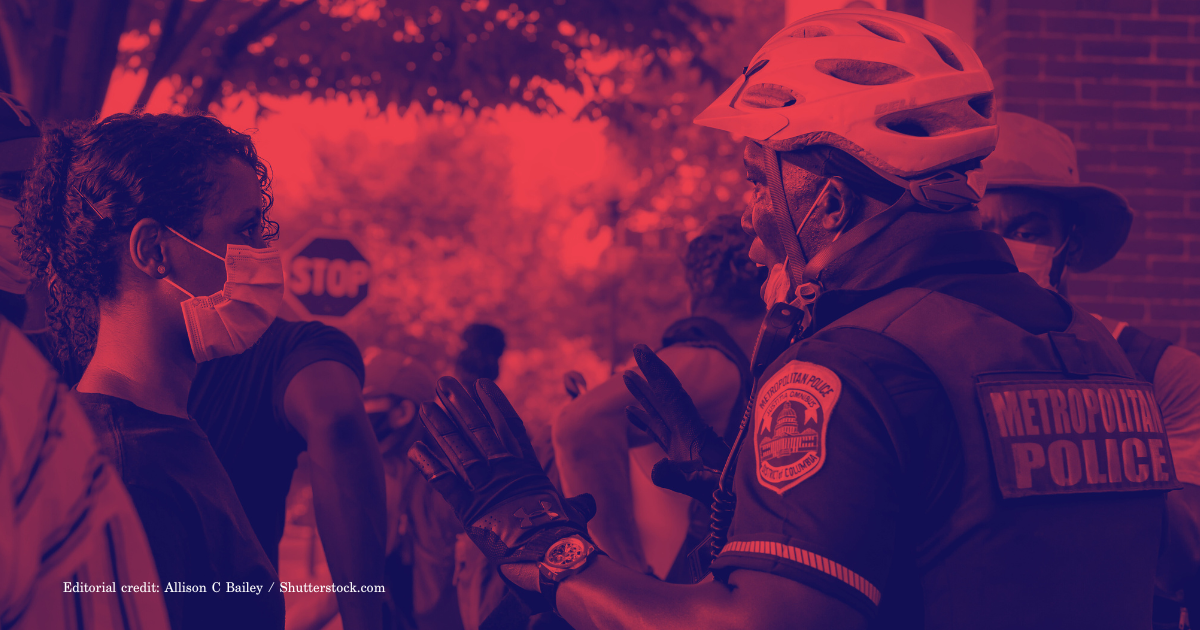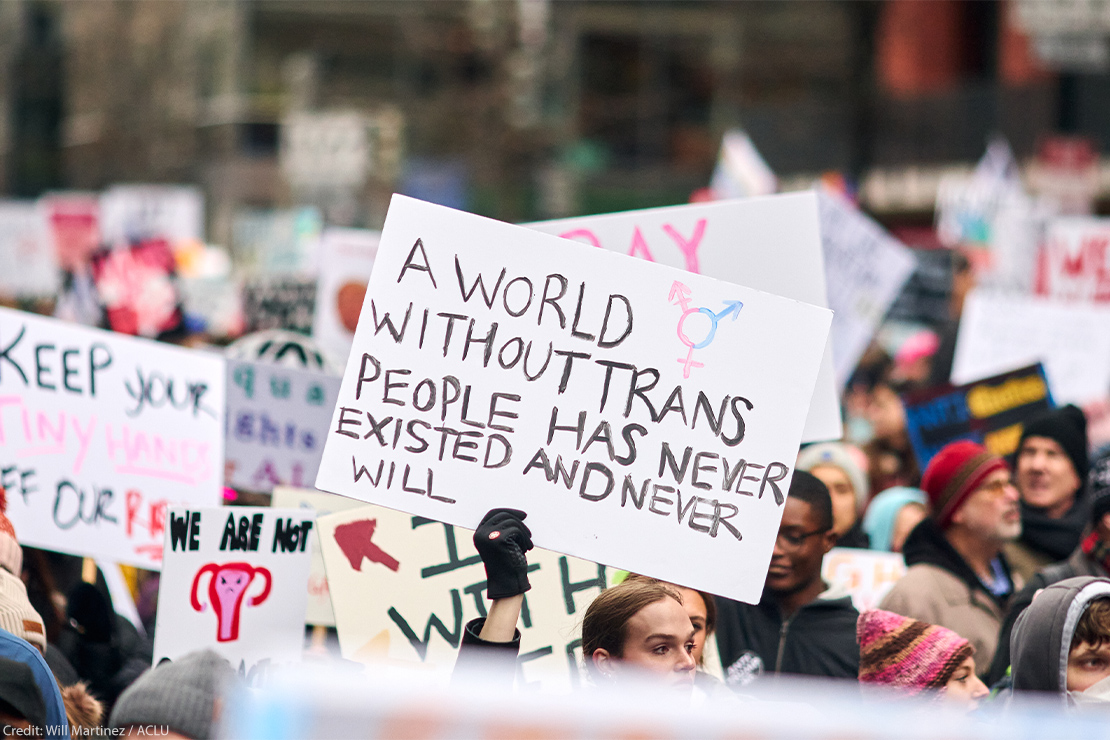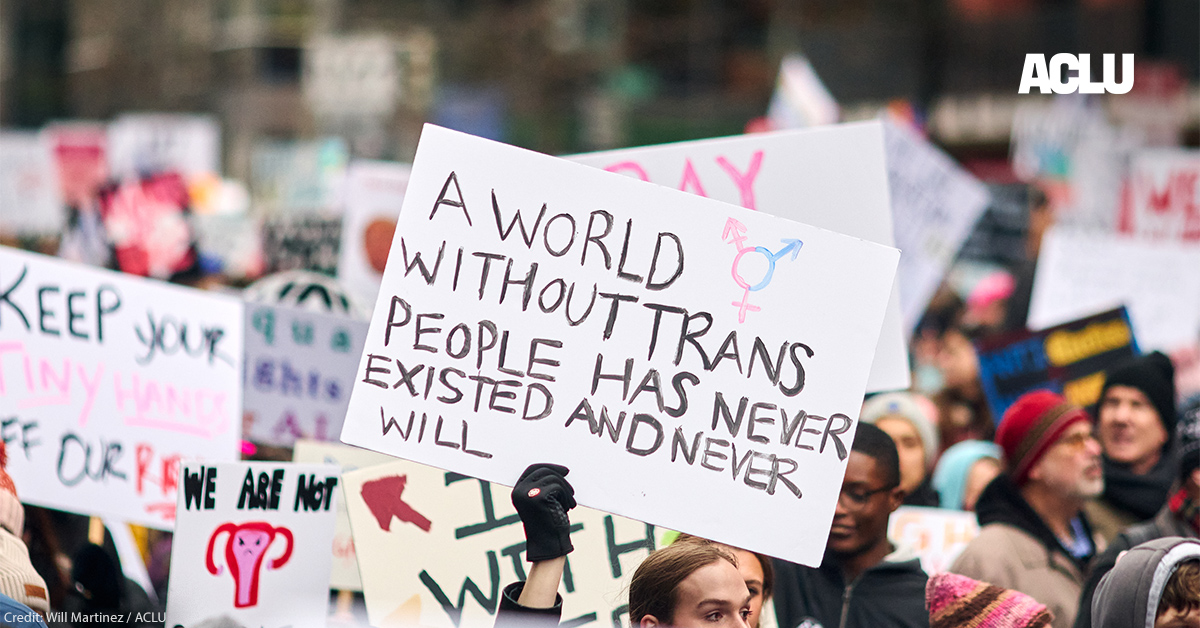Gillian Branstetter, Communications Strategist
Donald Trump was re-elected president on a wave of attacks against women and transgender people. Anti-transgender politicians spent more than $215 million on ads scapegoating trans people and promoting a Project 2025 agenda that threatens to rollback reproductive freedom and punish people for departing from archaic gender roles. On his first day back in office, President Trump signed a far-reaching executive order requiring federal agencies to discriminate against transgender people by denying who they are and threatening the freedom of self-determination and self-expression for all.
In 2020, the Supreme Court issued a 6-3 ruling in Bostock v. Clayton County affirming that discrimination against someone because they are LGBTQ is sex discrimination under Title VII of the 1964 Civil Rights Act. Justice Neil Gorsuch, writing for the majority, said: “it is impossible to discriminate against a person for being homosexual or transgender without discriminating against that individual based on sex.” Trump also withdrew an executive order issued by former President Joe Biden directing federal agencies to enforce this court ruling as applied to all laws prohibiting sex discrimination.
We all deserve the freedom to be ourselves, including the right to determine what’s right for our bodies and lives. Trump’s sex discrimination mandate threatens to deny that freedom to transgender people across the country while forcing everyone else to sacrifice their own freedom and privacy, too.
What Does the Order Say?
Trump’s signed order states: “It is the policy of the United States to recognize two sexes, male and female. These sexes are not changeable and are grounded in fundamental and incontrovertible reality.” The order defines terms like “man” and “woman” based on whether a person “at conception” belongs “to the sex that produces the large reproductive cell” or that “produces the small reproductive cell.”
Trump’s order then directs federal agencies to “enforce laws governing sex-based rights, protections, opportunities, and accommodations” using his cramped definitions, including designating sex on passports and other federal identification documents, or determining where transgender people are confined in federal custody. The order also includes a sweeping mandate to all agencies to “end the Federal funding of gender ideology.” Of course, the order does not explain what that means or how agencies would accomplish such a task.
For decades, feminist legal scholars and women’s rights advocates have opposed efforts to define gender based strictly on biology. Recent state laws that use these definitions to discriminate against transgender people have resulted in invasive and traumatizing efforts to determine who “counts” as a man or as a woman, targeting youth who are even suspected of being transgender because they do not conform to sex stereotypes. This order likewise ignores the existence of intersex people and others with variations in sex characteristics beyond the overly-simplistic definitions Trump endorsed.
What Does the Order Do?
Very few executive orders change policy immediately, and they cannot change laws passed by Congress or protections guaranteed by the Constitution. As of January 21, 2025 it is unclear how the Trump administration will enforce this order as applied to educational settings, health care access, housing, federally-funded programs, and many other areas where federal law or policy references “sex” or “gender.”
Some of the most immediate impacts will likely be felt by the more than 2,000 transgender people currently held in federal custody. The order specifically calls on the Federal Bureau of Prisons (BOP) and the Department of Homeland Security (DHS) to ignore the guidelines of the Prison Rape Elimination Act (PREA) and enforce a blanket policy forcing transgender women into men’s prisons and detention centers against their will. This puts them at a severely heightened risk of sexual assault and abuse by other incarcerated persons and prison staff. The order also mandates that BOP withdraw critical health care from trans people in federal prison.
We also expect to see immediate impacts on access to updated sex designations on U.S. passports. Transgender people frequently update the sex designation on documents like birth certificates, driver’s licenses, and passports to reflect their gender identity rather than the sex they were assigned at birth. Requiring transgender peoples’ passports to show the sex they were assigned at birth effectively outs them as transgender whenever they have to present the document.
Soon after the order was issued, a Trump administration official told a reporter that the policy impacting gender markers on U.S. passports would not apply retroactively for current passport holders. Trump’s order will, however, prevent transgender and intersex people from obtaining new passports, visas, and trusted traveler documents that reflect who they are and how they are perceived in the world.
The State Department recently said that all applications for gender change are "suspended." Because people have to provide their existing passport and other documents to update their passport, if people attempt to update the sex designation on their passport now, they run the risk of not having a valid passport at all while the passport is out of their possession.
What Happens Next?
We expect the order may be enforced in other contexts, such as in public schools and sex-separated spaces. It may also be used to limit workplace protections and to limit federally-funded programs that provide access for gender-affirming health care. If federal agencies and departments act to make those risks a reality, the ACLU and other LGBTQ rights organizations will fight them every step of the way.
If you have been impacted by this order, let us know.
https://www.aclu.org/news/lgbtq-rights/trumps-executive-orders-promoting-sex-discrimination-explained
A new executive order lays out a plan to erase transgender people’s existence under the law


